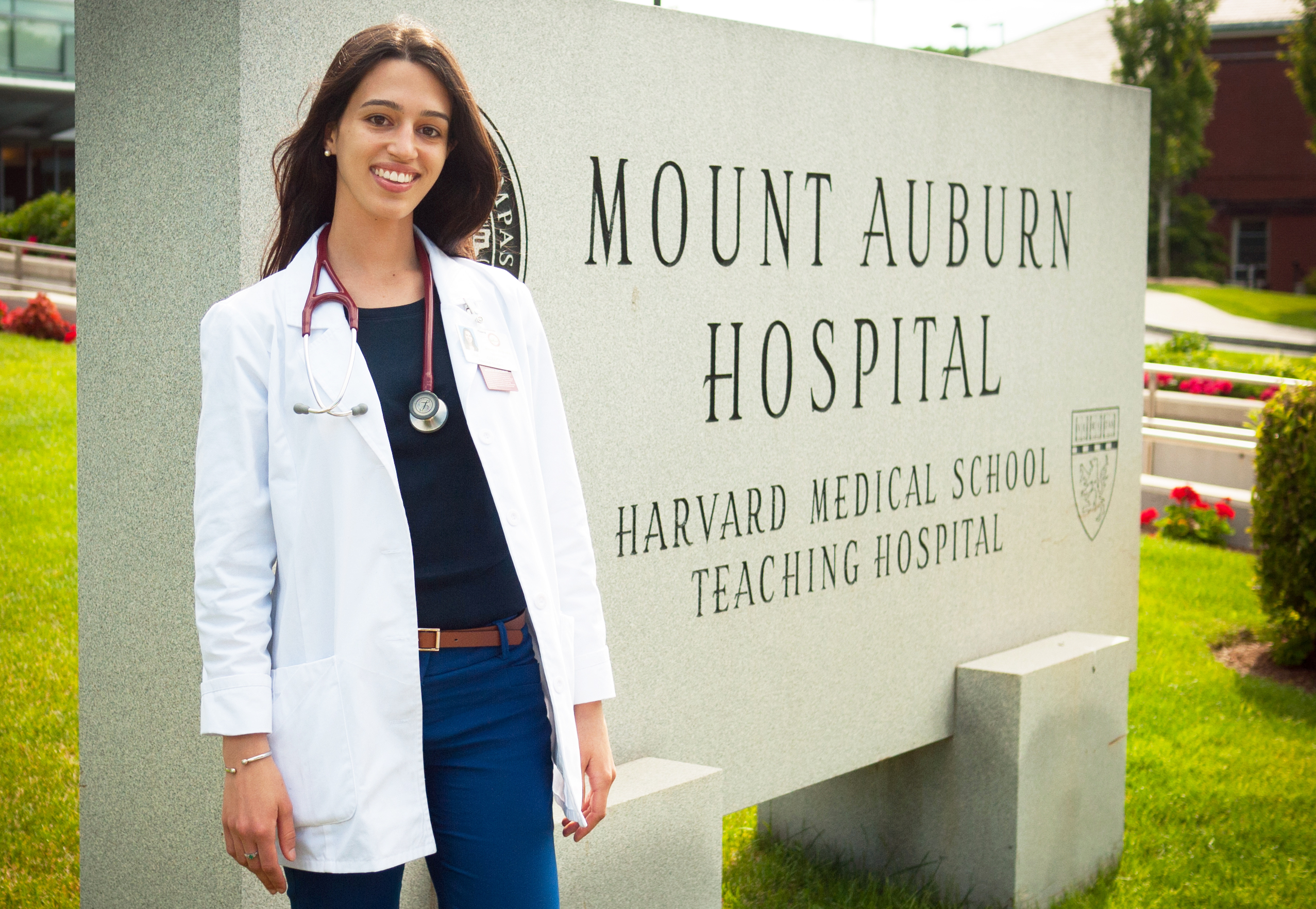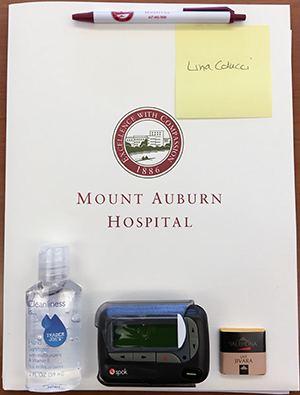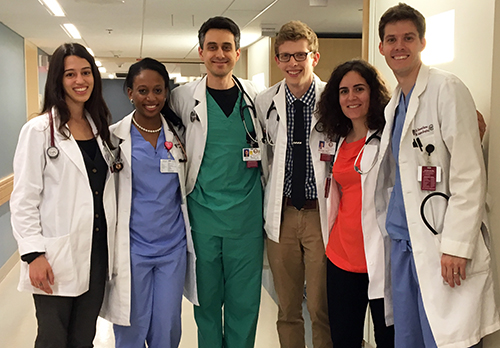Grad Life: Why MIT is the Best Place to Build the Future of Healthcare
-
-
slice.mit.edu
- 6
Filed Under
Recommended

Lina Colucci is a fifth-year PhD Candidate in the Harvard-MIT Health Sciences and Technology Program.
It was the first time in a long time that I felt first day butterflies. I bumped into my friends on the walk over to Mt. Auburn Hospital and we strolled into the hospital lobby together. Several of our classmates were already there: the boys in ties, the girls in slacks or skirts, and everyone with a gray medical bag of stethoscopes and blood pressure cuffs that we didn’t yet know how to use hanging from one shoulder.
 Our medical director met us and took us up four flights of stairs to a meeting room. We were instructed to put on our white coats and stethoscopes. The responsibility of the white coat felt heavy on my shoulders.
Our medical director met us and took us up four flights of stairs to a meeting room. We were instructed to put on our white coats and stethoscopes. The responsibility of the white coat felt heavy on my shoulders.
We spent the first few weeks learning to function in a hospital. We fumbled with the coordination involved in using a manual blood pressure cuff, strained to hear differences in the lub dubs of patients’ hearts, and learned to manage the overwhelming amount of information that had to be obtained and written up through patient interviews and physical exams.
Three months later, however, you would not have believed we were the same people.
I checked in on my patients every morning, gave reports of their progress to attending physicians, stayed at the hospital late into the night to handle emergencies, and taught patients what to do when they went home from the hospital.
I learned to manage heart attacks, scrubbed in for surgeries, and held women’s legs as they delivered babies. I learned to speak in acronyms and deliver concise verbal summaries, i.e.: “This is a 74-year-old female status post CABG in 2012 who presented to the emergency room with chest pain and dyspnea on exertion.”
People do not usually associate MIT with medical studies. When people think of MIT, images of robots, machine shops, and powerful computers come to mind. MIT does not, after all, have a medical school. But my experiences at MIT have given me the best training I can imagine for a future devoted to healthcare innovation.

I am a PhD student in a little known program called the Harvard-MIT Health Sciences and Technology (HST) Program. I do my graduate work in mechanical engineering at MIT and approximately the first year of medical school including hospital rotations at Harvard Medical School. For any innovator who wants to make a lasting impact in healthcare, hands-on experience with the medical world is invaluable.
It’s not just the HST curriculum that makes MIT an amazing place for healthcare innovation. In a medical device development course (2.75), I worked directly with the chief of surgery at the VA Hospital in West Roxbury to develop electrosurgery equipment that would warn surgeons when they exceeded an acceptable total energy limit.
In my research, I work directly with nephrologists at MGH and collect data on dialysis patients through a grant that is dedicated to fostering collaboration between MIT and MGH. At MIT, world-class physicians have become my friends.
As co-director of the group MIT Hacking Medicine, I worked with physicians from Brigham and Women’s Hospital, Boston Children’s Hospital, and Mass General Hospital on initiatives that eventually led to the development of innovation centers at each of these hospitals. MIT Hacking Medicine is one of the hubs of health innovation in Boston and I got to connect with the thousands of people on our mailing list and partner with hospitals and innovative health companies all over the globe.
MIT is within a five-mile radius of 15 different hospitals, including some of the top medical centers in the world. MIT represents a “neutral ground” of pure technical talent that hospitals want to tap into for innovation and research. MIT has been the best place I can imagine to train me for a future in healthcare innovation.
Grad Life blog posts offer insights from current MIT graduate students twice a month on Slice of MIT.








Comments
Dominic HO, BS…
Tue, 05/23/2017 3:12am
I enjoy reading your article. Keep up the good work and innovation.
Lina Colucci
Mon, 10/02/2017 3:18pm
Thank you, Dominic!
John Barravecc…
Sun, 05/21/2017 7:58am
This sounds great. This is what has not been done with development of electronic medical records. They have not been designed to help the end user. Is anyone addressing this in the program?
Lina Colucci
Mon, 10/02/2017 3:18pm
Hi John- yes, developing better EMRs is an area that needs serious attention. There is a new project in the Media Lab that is looking at developing a better EMR with blockchain technology: https://www.media.mit.edu/research/groups/1454/medrec.
And many researchers at MIT do work with analyzing EMR data to come up with better predictive algorithms and diagnostic criteria: http://news.mit.edu/2011/health-care-of-the-future-0706
There was a hackathon that MIT Hacking Medicine helped with back in 2014 that is now a full course devoted to analyzing EMR data: http://criticaldata.mit.edu/course/
Henry
Thu, 05/04/2017 6:12pm
I read a lot of MIT blogs Lina and time after time I see alumni quoting the atmosphere on campus as being condusive to innovation.
Your studies come at a wonderful time for learning and with so many technolgical advances coupled with huge amounts of data available your pioneering work with local hospitals sounds like a great thing.
Best of luck to you.
Lina Colucci
Mon, 10/02/2017 2:47pm
Thank you so much, Henry! I agree, it is an exciting time in history to be working on healthcare innovation. I feel very lucky to be at MIT and Boston doing this work.